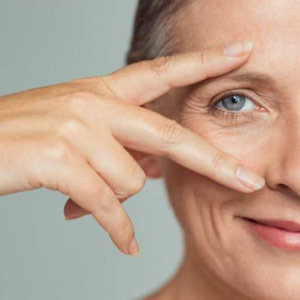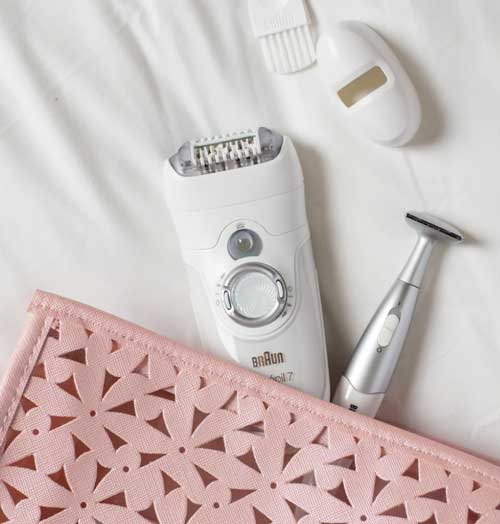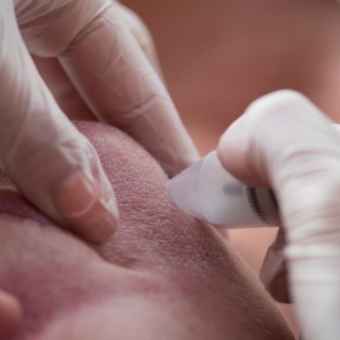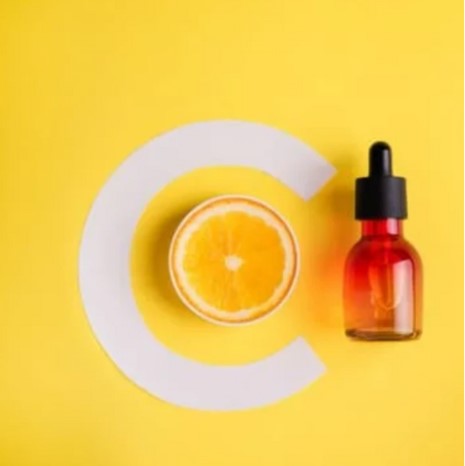Lauryl Glucoside - Sounds Like A Harsh Chemical. But Is It?
This article was updated on:
It might be very confusing to read label ingredients. Still, it's necessary if you want to understand which one is a healthy choice and which one is best to avoid.
Even naturally-derived ingredients sometimes come with a name that sounds like a harsh chemical, and lauryl glucoside is one of them.
Keep reading to learn all about lauryl glucoside, including how it's made, what products it used in, and who should avoid it.
- What Is Lauryl Glucoside?
- What Is Lauryl Glucoside Made Of?
- Does Lauryl Glucoside Natural Ingredient?
- In What Products It Mainly Used?
- Is Lauryl Glucoside Safe For Skin?
- Does Lauryl Glucoside Safe For Sensitive Skin?
- Can Lauryl Glucoside Cause Allergy?
- Does Lauryl Glucoside Have Any Side Effects?
- Is Lauryl Glucoside The Same As Sodium Lauryl Sulfate?
- Conclusion & References
What Is Lauryl Glucoside?
Let's start with the basics. Lauryl glucoside is a type of surfactant (cleansing agent) that works to reduce liquid-based products' viscosity, making it easier to apply and rinse it off.
It's a natural origin, a biodegradable and mild . It creates a moderate amount of foaming bubbles that we commonly see in various skincare and household products, but not as much as chemical-based soaps.
It's common to find not just lauryl glucoside in the list of ingredients of the cleansing products but also the other two glucoside derivative - decyl glucoside and coco glucoside. Those two are also good surfactant ingredients derived from corn and coconut, respectively.
The difference between these three is their stability and foaming properties, with lauryl glucoside has the slowest and the best foaming effect compared to the rest and certainly more stable, followed by coco glucoside and decyl glucoside.
RECOMMENDED READING:
● PHENOXYETHANOL IN SKINCARE WHAT IS THIS AND WHY TO AVOID

What Is Lauryl Glucoside Made Of?
Lauryl glucoside is made by combining sugar (usually comes from corn) with fatty alcohol (which comes from fat, which could be animal, vegetable, or petrochemical).
As for now, most of the fatty alcohol is derived from palm, so if you are "palm conscious" and looking for sustainable products, you must be aware of this and look for the brands that using coconut oil instead.
It is found that lauryl glucoside that derives fatty alcohol from coconut oil makes a stable foam and perfect for skincare products compared to other combinations.
(MetaPora cleansers are made with lauryl glucoside derived from sugar and coconut only. They are safe to use and sustainable for the environment. See more details here.)
Does Lauryl Glucoside Natural Ingredient?
This is a very important question to ask, but not always easy to answer. And this is mainly because every manufacturer produces a glucoside using slightly different chemistry.
It's is safe to say that lauryl glucoside is a natural ingredient. Since at least half of it's composition is natural (the sugar one). But the other half, fatty alcohol - might be derived from petrochemicals. Therefore it can be named "100% naturally-derived" only if used fatty alcohol derived from coconut oil or any other vegetable oil.
So, the bottom line, if you after a 100% plant-based product, look for remark on the ingredients label what the lauryl glucoside was derived from. (If there are no remarks, probable petrochemical were used, since it's a cheaper option).
RECOMMENDED READING:
● 10 NATURAL HERBS & SPICES TO KEEP YOUR SKIN BALANCED
In What Products It Mainly Used?
So being a surfactant, you can expect lauryl glucoside commonly found in products meant for cleansing.
It is widely used for skincare, makeup, and household products thanks to it’s foaming features and the ability to make the whole product spread out more easily as well as to rinse it out, taking away debris along with it.
Without it, you probably spend quite a time to spread out the product evenly onto the skin; think shampoo, for example.
Is Lauryl Glucoside Safe For Skin?
It is considered lauryl glucoside safe for the skin, and very low risk of irritation. Although, because of different chemistry used in the manufacturing process, products with lauryl glucoside may all work the same but vary in ‘mildness.’
This feature is the most notable when comparing it with similar surfactants like SLS, known for being harsh to the skin.
Does Lauryl Glucoside Safe For Sensitive Skin?
Yes, we probably can say the ingredient is safe for sensitive skin. In fact, lauryl glucoside is listed on the Safe Cosmetics Database and the GoodGuide database as being safe for the skin sensitive and the rest of the skin types.
Plus, the ingredient is also approved to use in certified organic cosmetics by both the Organic Food Federation and EcoCert.
Can Lauryl Glucoside Cause Allergy?
Yes, we probably can say the ingredient is safe for sensitive skin. In fact, lauryl glucoside is listed on the Safe Cosmetics Database and the GoodGuide database as being safe for the skin sensitive and the rest of the skin types.
Plus, the ingredient is also approved to use in certified organic cosmetics by both the Organic Food Federation and EcoCert.
Have You Tried 100% Plant-Based??
Does Lauryl Glucoside Have Any Side Effects?
At the moment, there are no known risks or side effects of lauryl glucoside to the skin. However, it’s highly recommended that you do a patch test before using any lauryl glucoside products if you feel concerned.
It should be noted, though, that pregnant and/or nursing women, as well as the ones with sensitivity and/or allergy to the ingredient lauryl glucoside, is made of (namely palm kernel oil, coconut, or corn sugar) should not use it to avoid any unwanted reaction.
In any case, the ingredient should never be used near the nose, ears, and eyes or even swallowing it. Potential effects of such exposure include irritation to the said sensitive area and dizziness, drowsiness, and headaches.

Is Lauryl Glucoside The Same As Sodium Lauryl Sulfate?
No, no, no, no!!!
Lauryl glucoside is not the same as sodium lauryl sulfate. The names might look similar, but the key is the former does not have the word 'sulfate' in it.
This word meant its a derivative of sulfuric acid - sodium lauryl sulfate (SLS), totally unnatural and potentially harmful for the skin, especially for prolonged usage, sensitive skin, and baby products.
Multiple studies have indicated that SLS can cause "severe epidermal changes" and the hair follicle that can trigger acne breakouts.
If SLS is used, studies recommend that you need to wash it off with lots of water as soon as it comes in contact with the skin - definitely impractical to cleanse, especially if you're handling babies' skin!
Meaning, while it can certainly wash off dirt, grease, and grime, it affects the skin's surface at the same time. Not to mention being a toxic pollutant that is harmful to the environment.
Sadly, despite such abrasive nature, SLS is commonly used in skincare and makeup products and heavy-duty cleaners such as car wash soaps, detergents, softeners, and various industry-level cleaning products.
As for lauryl glucoside, the word 'glucoside' means it relates to a type of sugar (from the word glucose). They are more gentle but clean just as effectively without being abrasive to the skin.
So it definitely a better choice for any cleaning product you might be using on your skin or in your household. So pay attention to the ingredients while you are shopping for those.
In Conclusion
Yes, maybe lauryl glucoside - sounds like a harsh chemical, but it's not really. It's natural and sometimes even 100% natural. Derived from sugar and fatty alcohol of vegetable oil and used mainly in cleansers.
It's the right choice for any skin, including even sensitive skin. Read the labels and make a conscious choice. Your skin is your largest organ and absorbs anything you put on it. Stay healthy, strong, and positive!
References
1.https://www.ewg.org/skindeep/ingredients/703445-lauryl_glucoside/
2.https://realizebeauty.wordpress.com/2015/11/24/the-inside-story-of-glucoside-surfactants
3. https://journals.sagepub.com/doi/pdf/10.1177/1091581813497764
4. https://www.the-dermatologist.com/content/alkyl-glucosides






